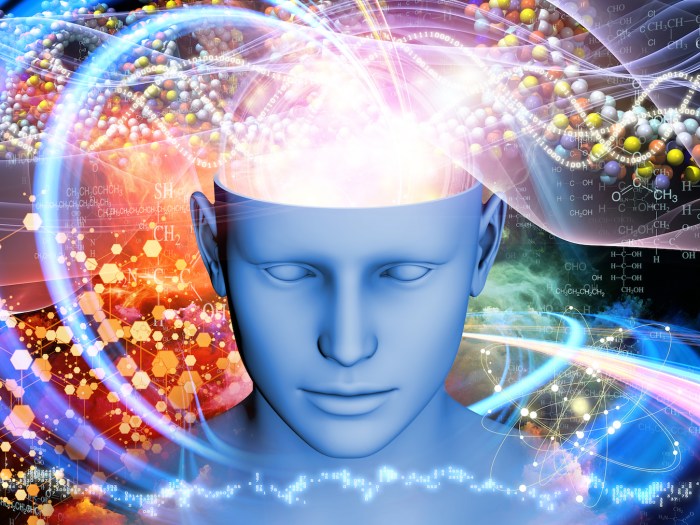Schizophrenia is characterized by all of the following except: a complex and multifaceted mental health condition that manifests in a range of symptoms and presentations. Understanding the defining characteristics of schizophrenia and distinguishing them from other mental health conditions is crucial for accurate diagnosis and effective treatment.
Schizophrenia is a severe mental disorder that affects a person’s thoughts, feelings, and behavior. It is characterized by positive symptoms, such as hallucinations, delusions, and disorganized speech, as well as negative symptoms, such as social withdrawal, apathy, and impaired cognitive functioning.
The exact cause of schizophrenia is unknown, but it is thought to be caused by a combination of genetic and environmental factors.
Overview of Schizophrenia: Schizophrenia Is Characterized By All Of The Following Except

Schizophrenia is a severe mental disorder characterized by disruptions in thought, perception, and behavior. It affects approximately 1% of the population worldwide and typically emerges in late adolescence or early adulthood.
The exact causes of schizophrenia remain unknown, but it is believed to be influenced by a combination of genetic, environmental, and neurochemical factors.
Key Characteristics of Schizophrenia, Schizophrenia is characterized by all of the following except
Schizophrenia is characterized by a range of symptoms that can vary in severity and presentation.
- Positive symptoms:These involve the addition of abnormal experiences or behaviors, such as hallucinations, delusions, disorganized speech, and bizarre behavior.
- Negative symptoms:These involve a reduction or loss of normal functions, such as emotional flatness, anhedonia, social withdrawal, and impaired cognition.
Diagnostic Criteria for Schizophrenia
The diagnosis of schizophrenia requires meeting specific criteria Artikeld in diagnostic manuals such as the Diagnostic and Statistical Manual of Mental Disorders (DSM-5) or the International Classification of Diseases (ICD-11).
These criteria include:
- Presence of at least two core symptoms (positive or negative) for a significant period of time
- Significant impairment in social, occupational, or other important areas of functioning
- Exclusion of other medical or substance-induced conditions that could account for the symptoms
Comorbidities Associated with Schizophrenia
Schizophrenia is often associated with other mental health conditions, including:
- Mood disorders (e.g., depression, bipolar disorder)
- Anxiety disorders (e.g., generalized anxiety disorder, social anxiety disorder)
- Substance use disorders (e.g., alcohol use disorder, drug use disorder)
- Personality disorders (e.g., borderline personality disorder, antisocial personality disorder)
Treatment Options for Schizophrenia
| Medication | Therapy | Supportive Interventions |
|---|---|---|
| Antipsychotics | Cognitive-behavioral therapy (CBT) | Case management |
| Mood stabilizers | Family therapy | Supported employment |
| Antidepressants | Psychosocial rehabilitation | Peer support groups |
Prognosis and Recovery in Schizophrenia
The prognosis for schizophrenia varies depending on individual factors, including the severity of symptoms, treatment adherence, and social support.
Recovery is possible with appropriate treatment and support. Strategies for promoting recovery include:
- Early intervention
- Medication adherence
- Psychotherapy
- Social skills training
- Supported employment
- Family support
Schizophrenia in Society
Schizophrenia carries a significant stigma that can lead to discrimination and social isolation.
Individuals with schizophrenia face challenges in various societal settings, including:
- Employment
- Education
- Housing
- Relationships
Answers to Common Questions
What is the difference between schizophrenia and bipolar disorder?
Bipolar disorder is characterized by alternating episodes of mania and depression, while schizophrenia is characterized by persistent positive and negative symptoms, such as hallucinations, delusions, and social withdrawal.
What are the treatment options for schizophrenia?
Treatment options for schizophrenia include medication, psychotherapy, and social support. Medication can help to manage symptoms and improve functioning, while psychotherapy can help individuals develop coping mechanisms and improve their quality of life.
What is the prognosis for schizophrenia?
The prognosis for schizophrenia varies depending on the individual. With proper treatment, many individuals with schizophrenia can live full and productive lives. However, the condition can be chronic and may require ongoing management.



